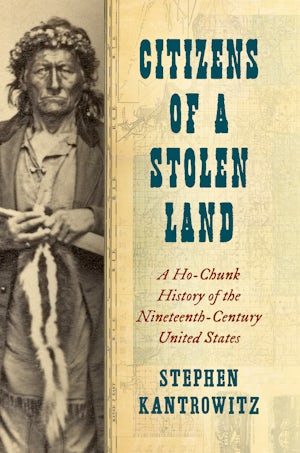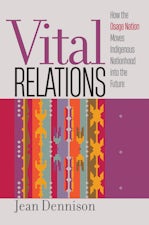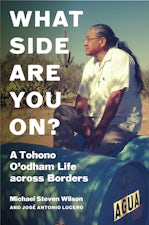Citizens of a Stolen Land
A Ho-Chunk History of the Nineteenth-Century United States
By Stephen Kantrowitz
238 pp., 6.125 x 9.25, 13 halftones, 7 maps, notes, bibl., index
-
Paperback ISBN: 978-1-4696-7360-8
Published: April 2023 -
Hardcover ISBN: 978-1-4696-7359-2
Published: April 2023 -
E-book EPUB ISBN: 978-1-4696-7361-5
Published: March 2023 -
E-book PDF ISBN: 979-8-8908-5493-3
Published: March 2023
Steven and Janice Brose Lectures in the Civil War Era
Buy this Book
- Paperback $24.95
- Hardcover $99.00
- E-Book $17.99
For Professors:
Free E-Exam Copies
Awards & distinctions
The Civil War Monitor's Best Civil War Books of 2023, Honorable Mention
This history of Ho-Chunk sovereignty and citizenship offer a bracing new perspective on citizenship's perils and promises, the way the broader nineteenth-century conflict between "free soil" and slaveholding expansion shaped Indigenous life, and the continuing impact of Native people's struggles and claims on U.S. politics and society.
About the Author
Stephen Kantrowitz is Plaenert-Bascom and Vilas Distinguished Achievement Professor of History at the University of Wisconsin-Madison.
For more information about Stephen Kantrowitz, visit
the
Author
Page.
Reviews
"As historians seek to better understand the Civil War’s wide-ranging consequences, Kantrowitz provides a model for understanding how the war challenged and changed ideas about race and citizenship—and how marginalized groups used the conflict to assert their rights as Americans."—The Civil War Monitor
"A much-needed intervention into the Indigenous history of North America and the history of the early American republic. For most people, Native history east of the Mississippi ends with removal, but Kantrowitz centers Indigenous people and nations within the story of westward expansion of the United States and reframes that expansion as a brutal struggle for control of Indigenous lands and a protracted contest to define the terms of inclusion and exclusion for Native peoples, white settlers, and free and enslaved Black people."—Michael Witgen, author of Seeing Red: Indigenous Land, American Expansion, and the Political Economy of Plunder in North America
"A sweeping history of the Civil War Era that moves outward from the Ho-Chunk homeland in today’s Wisconsin, placing Native peoples and settler colonialism in conversation with more familiar questions of slavery and emancipation. Citizens of a Stolen Land is an essential contribution. "—Kate Masur, author of Until Justice Be Done: America’s First Civil Rights Movement, from the Revolution to Reconstruction




